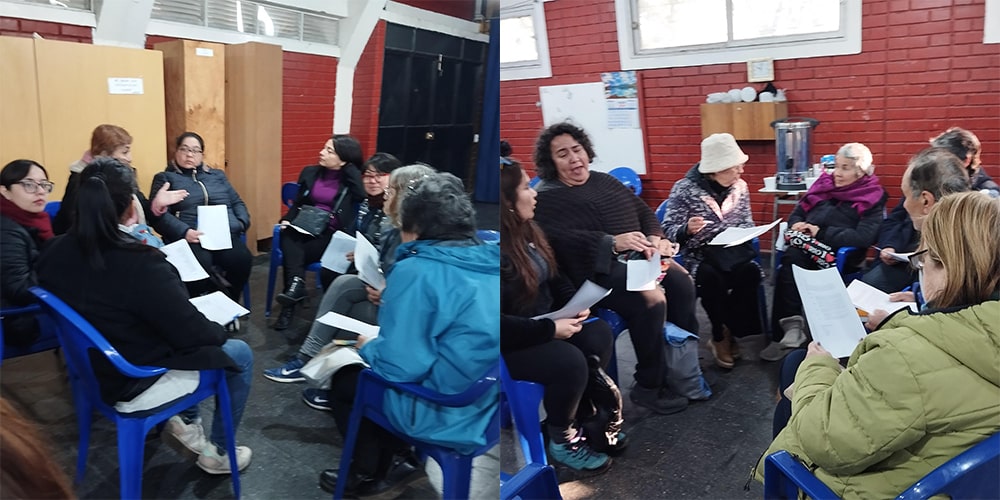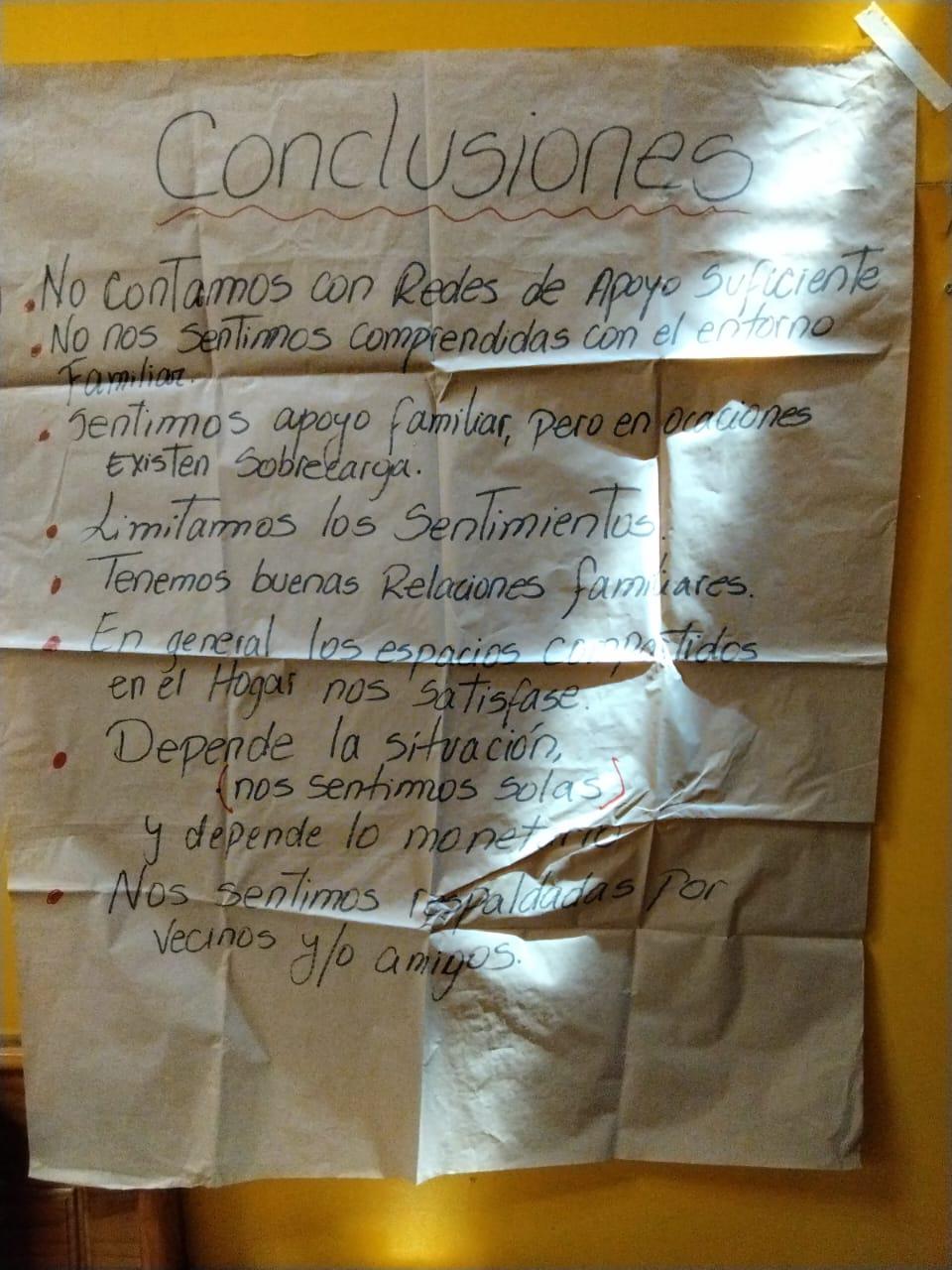By: Tatiana Rojas, Coordinator of CONATRADO Chile and member of the Executive Committee of HomeNet International
According to the ILO (International Labor Organization), the majority of caregivers are women, who mostly care for their children, grandchildren, and the elderly. This division of roles is based on the cultural perception that care work is predominantly a female role. Globally, women spend an average of 4 hours and 25 minutes a day on unpaid care work, compared to 1 hour and 23 minutes for men (ILO, “Care work and care workers for a decent working future”, 53).
Given these figures, it is crucial to reflect on the relationship between women working at home and their role as caregivers. In Chile, CONTRADO organised a workshop for women caregivers in the commune of Estación Central, in collaboration with the Mental Health Center (COSAM). This workshop, entitled “Jornada de Capacitación para Cuidar y Cuidarse” (Training Day for Caring and Taking Care of Yourself), sought mainly to address the mental health of these women, who, in many cases, are forced to work at home to care for children, adolescents and older adults in their families. This work must be balanced with income-generating activities, often causing emotional and physical overload. Caregivers assume full responsibility for the dependent person, assisting with day-to-day activities that may be simple or complex.
The emotional burden of being a caregiver can lead to anxiety, social isolation, sadness, irritability, depression, stress, fatigue, insomnia and difficulty concentrating. This negatively affects their quality of life.
Some of the demands expressed in the workshop include the lack of support networks, social isolation, socioeconomic vulnerability, and the need to sensitise the community and public officials about the importance of caregiving.
In conclusion, it is essential to recognise and value the work of women caregivers. We must raise awareness of the multiple roles and burdens faced by women caregivers and promote public policies that provide the necessary support to improve their quality of life and emotional well-being. Investment in this area will not only benefit them, but will also strengthen families and, ultimately, society as a whole.





